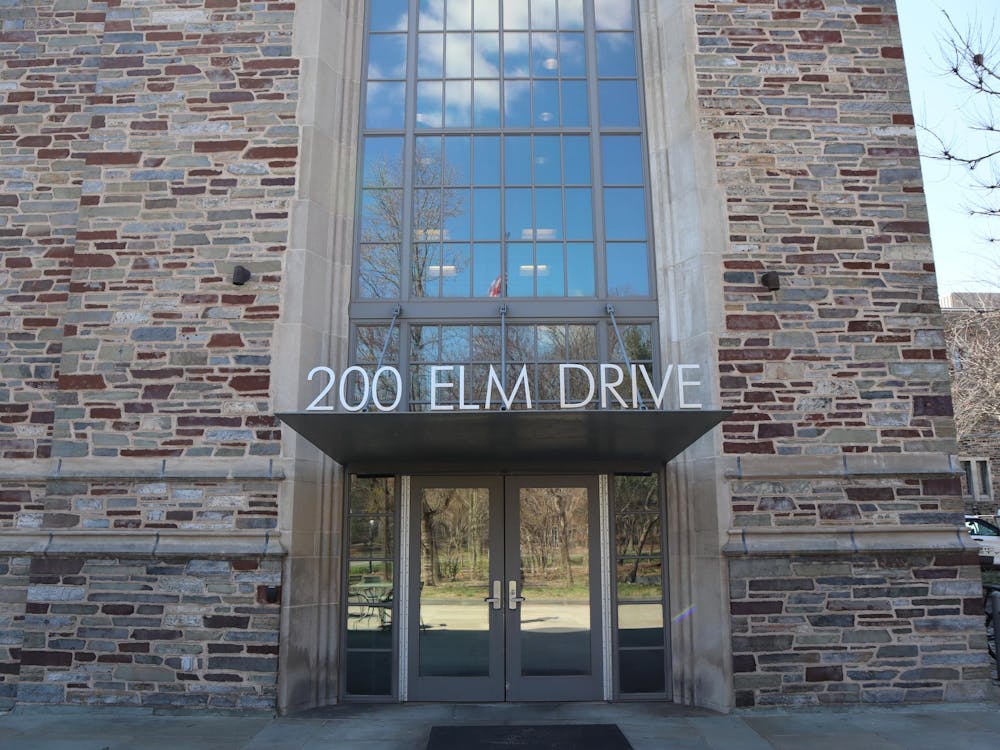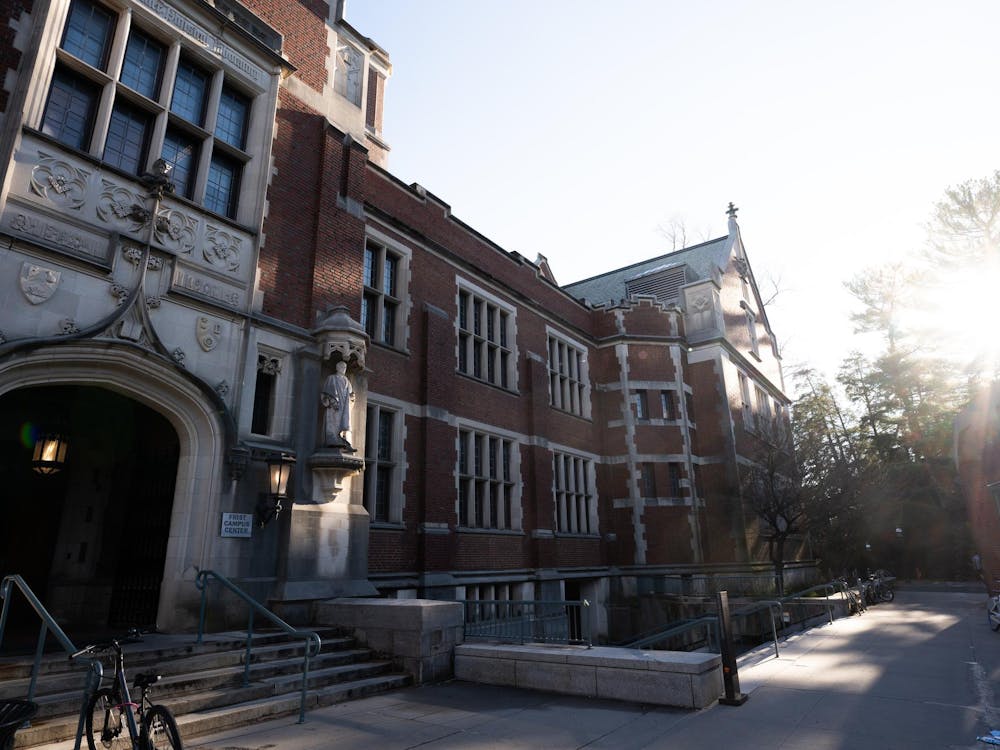“The proper scope of a university, in one soundbite, is to prepare citizens for a free society. A successful free society needs technologists, it needs philosophers, it needs people of integrity and public life,” Mitch Daniels ’71, president of Purdue University and former governor of Indiana, said in a conversation on Thursday with University Professor of jurisprudence and Director of the James Madison Program Robert George.
Daniels graduated from the University in 1971, majoring in the Wilson School, and earned a law degree from Georgetown University Law Center in 1979. He became the president of Purdue University in January 2013 after serving two terms as the 49th governor of Indiana, lasting from 2004 to 2012. Daniels was honored by the University with the Woodrow Wilson Award in February 2013 in recognition of his career in the service of the nation.
George began the conversation by introducing the question of the importance of the liberal arts education. “The question of the value of liberal arts learning, and therefore the future of liberal arts learning, is in dispute. Many people ask, ‘So what's the point?’” he explained.
Daniels stated that Purdue University aims for its students to have a genuine experience with the liberal arts. “College’s real value could best be measured in the capability of graduates to continue learning,” he said. “Whether our students are studying nuclear engineering or philosophy, we hope that they are developing an appreciation for the need, first of all, to examine all sorts of alternative ideas, to sort the good from the rot and to constantly learn and be inquisitive.”
He added that the College of Liberal Arts at Purdue is working to develop a package that would offer students, regardless of their major, a bundle of courses in fields such as politics, literature, economics or philosophy. Some basic rooting in those fields, Daniels explained, can foster critical faculties that make good citizens and business leaders.
George mentioned the conversation surrounding diversity within universities, especially in terms of liberal versus conservative ideologies. He said that he learned about the importance of diversity of thought while teaching a course with Dr. Cornel West, a former University professor whose liberal beliefs oppose George’s conservative stances. George explained that he and West each presented different counterarguments and perspectives to their students that the other would not have necessarily considered.
“What it does tell you is what you need is professors with different points of view in the academic community who are engaging with each other, hearing each other,” he said, noting that he hopes people at universities will recognize the importance of intellectual diversity.
Daniels added that the issue of diversity in the more general sense of the word is a difficult one, noting that Purdue is eager to bring more first generation, low-income college students to its campus. “Whose heart isn’t torn by the continuing problems and struggles of folks to rise in this society, particularly many of those in underrepresented minority groups?” he asked.
Daniels described his vision to create a high school in an inner city area in Indianapolis that could act as a pipeline to Purdue University. This school would ideally be replicated throughout the state. “My ambition is that four years from now, the first class emerges, and when they walk across the stage and are handed a diploma, there’s an admission to Purdue University inside,” he explained. “That’s the sort of link we want to go to, to try to ensure we are [working towards] the essential goal of upward mobility in our society.”
George asked Daniels about his opinion on the potential impact of college protests this fall regarding race and free speech on campus, especially in terms of the legacy of Woodrow Wilson, Class of 1879, at the University. Daniels said a similar event happened at Purdue, whether about 150 students sent him a statement and a list of concerns about diversity. He said that he found that there was plenty to agree on, including support for more diversity in the faculty and student body and more funding for scholarships.
“When it comes to our low income and minority students, we double down,” Daniels said. He added that he tried to impart to the students that their university is a place deeply committed to their success. “I told them, you know, you’ll probably never be in a place so committed to inclusivity, fairness for all, and you’ll probably never be in a place full of people who wish you well and are willing to help you do it, so it’s just a little ironic, in settings like that.”
George and Daniels also discussed the need for people in the world outside of higher education to care about what is taught in schools. Daniels mentioned recent surveys revealing that high percentages of college graduates, even those of Ivy League institutions, have a weak grasp of civic knowledge, including how well they understand the Declaration of Independence and the Bill of Rights.
Daniels explained that a school such as Princeton is among a group of universities that have large endowments and are in a sense “bulletproof,” but that beyond this circle of schools, there is a lot of risk in the realm of higher education. He said that the amount colleges charge in tuition is emerging into overdue scrutiny as people consider whether too many students are going to college, what they are actually learning when they are there and why it costs so much.
“There is very belatedly now a search for value, for genuine value, in higher education. I think outside the orbit of the fortunately endowed, schools are going to have to work harder than they have in the past to produce and demonstrate value,” Daniels stated.
An audience member asked George and Daniels to comment on the role of a university for non-students in the community. George spoke about the value to younger students of hearing the perspective of older community members in places such as lectures and events open to the public, as well as classes with community auditors. Daniels added that a university goes beyond four years of class through programs such as continuing education or professional networking opportunities. “What I want to start offering is Purdue for life,” he said.
The conversation, titled “What Are Universities For?” was sponsored by the James Madison Program and was held in the Friend Center on Thursday at 4 p.m.







